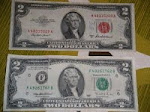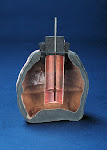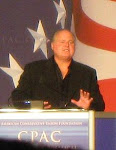Read entire article here:
" Rates of overdose deaths involving prescription drugs increased rapidly in the United States during 1999--2006 (1). However, such mortality data do not portray the morbidity associated with prescription drug overdoses. Data from emergency department (ED) visits can represent this morbidity and can be accessed more quickly than mortality data. To better understand recent national trends in drug-related morbidity, CDC and the Substance Abuse and Mental Health Services Administration (SAMHSA) reviewed the most recent 5 years of available data (2004--2008) on ED visits involving the nonmedical use of prescription drugs from SAMHSA's Drug Abuse Warning Network (DAWN). This report describes the results of that review, which showed that the estimated number of ED visits for nonmedical use of opioid analgesics increased 111% during 2004--2008 (from 144,600 to 305,900 visits) and increased 29% during 2007--2008. The highest numbers of ED visits were recorded for oxycodone, hydrocodone, and methadone, all of which showed statistically significant increases during the 5-year period. The estimated number of ED visits involving nonmedical use of benzodiazepines increased 89% during 2004--2008 (from 143,500 to 271,700 visits) and 24% during 2007--2008. These findings indicate substantial, increasing morbidity associated with the nonmedical use of prescription drugs in the United States during 2004--2008, despite recent efforts to control the problem. Stronger measures to reduce the diversion of prescription drugs to nonmedical purposes are warranted.
DAWN is a public health information system that tracks the impact of drug use, misuse, and abuse in the United States by monitoring drug-related hospital ED visits. In a manner similar to the National Electronic Injury Surveillance System,* DAWN uses a sample of EDs to estimate national ED visit rates (2). DAWN collects data from a stratified, simple random sample of approximately 220 nonfederal, short-stay, general hospitals that operate 24-hour EDs in the United States. DAWN's sampling frame is based on the American Hospital Association annual survey database and is updated annually to reflect new, closed, merged, and demerged hospitals, and to give new hospitals an opportunity to be selected into the sample."
-------
Note: I searched this document for cannabis, pot, THC - and found nothing. I wonder why? As usual the "war on drugs" is a non-specific war - like "war on terror" and other wars on things like poverty, stupidity. They never work. Eventually the money runs out and people have to fall back on discussion and reasonable courses of action that address the specifics - and face their wasteful over-reliance on generalities.
Perhaps a return to SPECIFICS and reasonable use of marijuana to address some of the maladies these "prescription drugs" are used for would result in fewer emergency room visits - as the patient benefiting from a now-banned and effective drug may never come into contact with the more dangerous and addicting ones.
Just some thoughts.
Subscribe to:
Post Comments (Atom)










































































.jpg)













Having worked in the US in the Heath field, I was astounded by the number of people who tried to game us for legal prescription narcotics. I even had some trying to get me to steal the drugs for them.
ReplyDeleteThanks above - are things different elsewhere or did you get out of the field?
ReplyDeleteJR
I understand I am outspoken on the topic. But I think the medical industries from top to bottom are immoral. They have some questionable benefit for today's populations, very questionable, but clearly, these efforts have the very grave potential to destroy the future for humanity.
ReplyDeleteAll it will take is one medical accident to open up more minds. A really big medical accident will open everyone's eyes.
Let's hope that accident -when it comes- isn't species ending.
If there is anything I have no right to criticize - it is someone being outspoken.
ReplyDeletePlease be outspoken - especially on this blog. Your comments are appreciated.
JR
I moved from the USA to Canada because Canada does not test hospital workers(or any workers) for drugs or marijuana. I am much more free up in this beautiful country.
ReplyDeleteAS an ER worker I see the horrors of alcohol and tobacco every day. And I see the non-existance of marijuana related emergencies.
Yes, my wife and I like our pot, and Canada even gave me a permit to use and grow marijuana for my arthritis.
Also Canada has free "universal health care". Any doctor, any hospital, any time, and no such thing as doctor bills or hospital bills. They can afford this due to the very tiny amount of money spent on the military.
America has a lot to learn from other countries, but a certain part of the population likes to remain arrogant and delusional in regards to the nation, whether it is drug policy, war policy, or health care...
ReplyDeleteWhat about cancer victims who can live a little longer by smoking pot to boost their ZERO appetite? Oh - lemme guess - we have to protect them from REEFER MADNESS (boo!) so they can in a hurry with a nice clear mind and a nice bony skeleton. Rubbish!
ReplyDelete